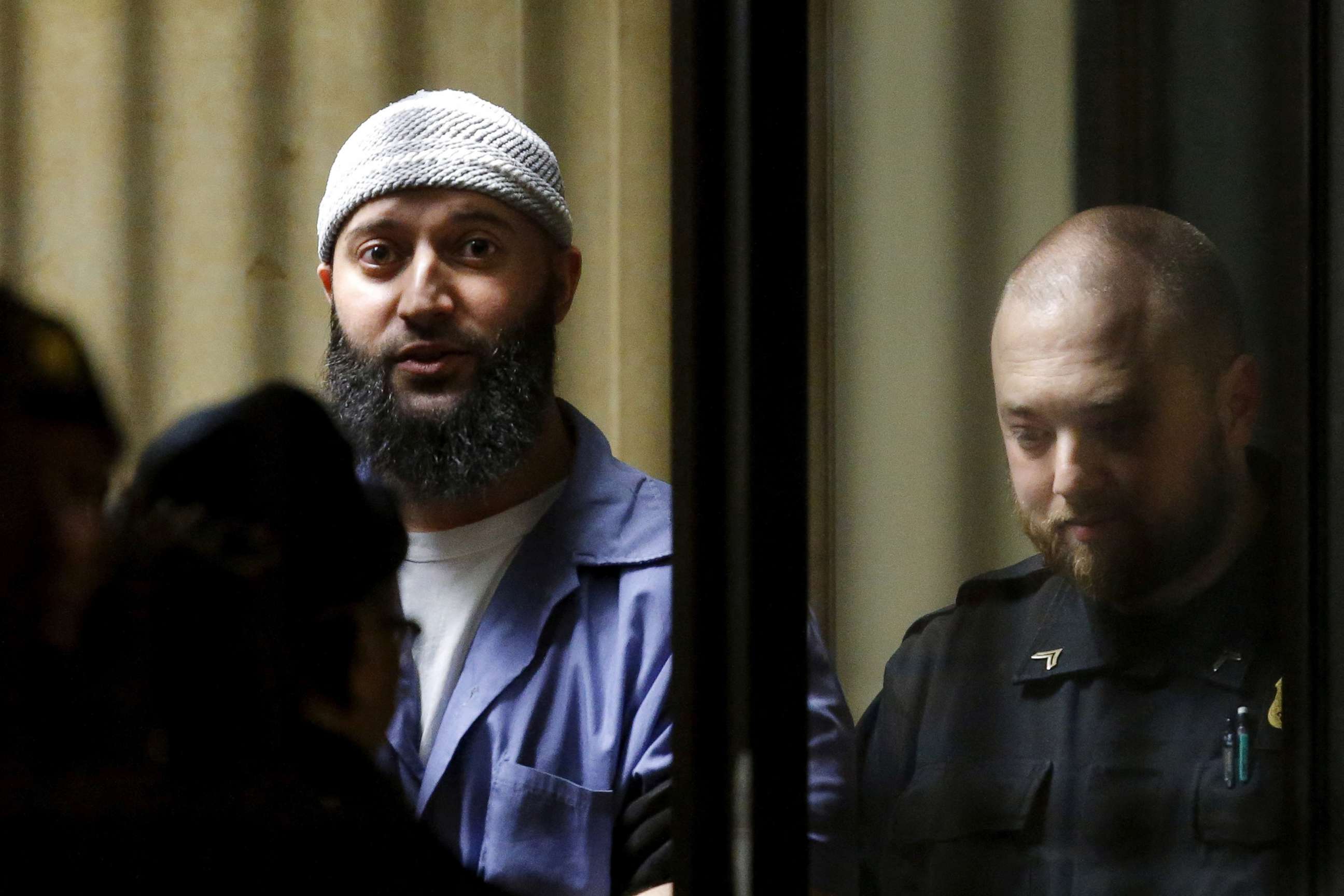'Serial' podcast subject's conviction should be vacated, prosecutors say
The conviction of Adnan Syed should be vacated, prosecutors said in a new court filing Wednesday.
Syed was the subject of the popular podcast "Serial," which profiles various murders around the country and shed light on the lack of DNA testing in his case.
At 17-years-old, he was convicted for the 1999 murder of 18-year-old Hae Min Lee and sentenced to life in prison plus 30 years. Prosecutors on Wednesday said that conviction should be vacated due to the lack of DNA evidence that "calls into question the integrity of the conviction."
The Baltimore County, Maryland, State's Attorney said in her filing the "evidence against the Defendant was not overwhelming and was largely circumstantial."
Syed's lawyer Erica Suter agreed.
In her response motion filed on Wednesday, she said his conviction rests on the word of a cooperating then 19-year-old who was "incentivized" to cooperate.
"Our criminal legal system serve us when we can have confidence in outcomes," Suter wrote. "Mr. Seyed's conviction rests on the evolving narrative of an incentivized cooperating, nineteen-year-old co-defendant, propped up by inaccurate and misleading cell phone location data."

In November 2019, the U.S. Supreme Court denied Syed's appeal for a new trial, upholding a Maryland appeals court's decision that rejected claims his trial lawyer failed to interview an alibi witness, and therefore Syed's constitutional right to effective legal representation was violated.
State's Attorney Marylin Mosby said her office was set out to right the wrongs of previous convictions.
"For that reason, after a nearly year-long investigation reviewing the facts of this case, Syed deserves a new trial where he is adequately represented and the latest evidence can be presented. As stewards of the court, we are obligated to uphold confidence in the integrity of convictions and do our part to correct when this standard has been comprised," she said. "We have spoken with the family of Ms. Hae Min Lee and fully understand that the person responsible for this heinous crime must be held accountable."
In March, the office asked Baltimore City Police Chief Becky Feldman and the defense filed a Joint Petition for Post-Conviction DNA Testing of the victim's clothing. Specifically, the motion requested the clothing tested for touch DNA, which was unavailable at the time of trial.
In 2018, the Baltimore City Police Lab tested various items for DNA through an agreement between the Office of the Attorney General and the defendant's previous counsel. However, the items now being tested were not previously tested in 2018, with the exception of the victim's fingernail clippings.
In 2018 the State's Attorney's office conducted a DNA test but noted that some items were not tested.
The new filing says the re-investigation of the case revealed evidence regarding the possible involvement of two alternative suspects other than Syed.
The two suspects may be involved individually or may be involved together, the filing said, noting these suspects were known persons at the time of the original investigation and were not properly ruled out nor disclosed to the defense. According to the trial file, the person said "He would make her [Ms. Lee] disappear. He would kill her." The state said it cannot disclose names at this point.
The Serial podcast tweeted, "This is big news. For the first time, Baltimore prosecutors are saying they don't have confidence in Adnan Syed's conviction and are asking for his release."
Prosecutors don't make a determination whether he is innocent, just that the conviction should be vacated based on the evidence and Syed should be granted a new trial.
The court filing says that Syed's case might have incurred a violation of what is known as the Brady rule -- stemming from the Supreme Court precedent-setting case Brady v. Maryland that requires a remedy if the defense is not given all of the information at trial it could potentially foil the case.
"The State avers that considering the totality of evidence now available, the information about an alternative suspect would have been helpful to the defense because it would have helped substantiate an alternative suspect defense that was consistent with the defense at trial."
ABC News' Santina Leuci contributed to this report.




